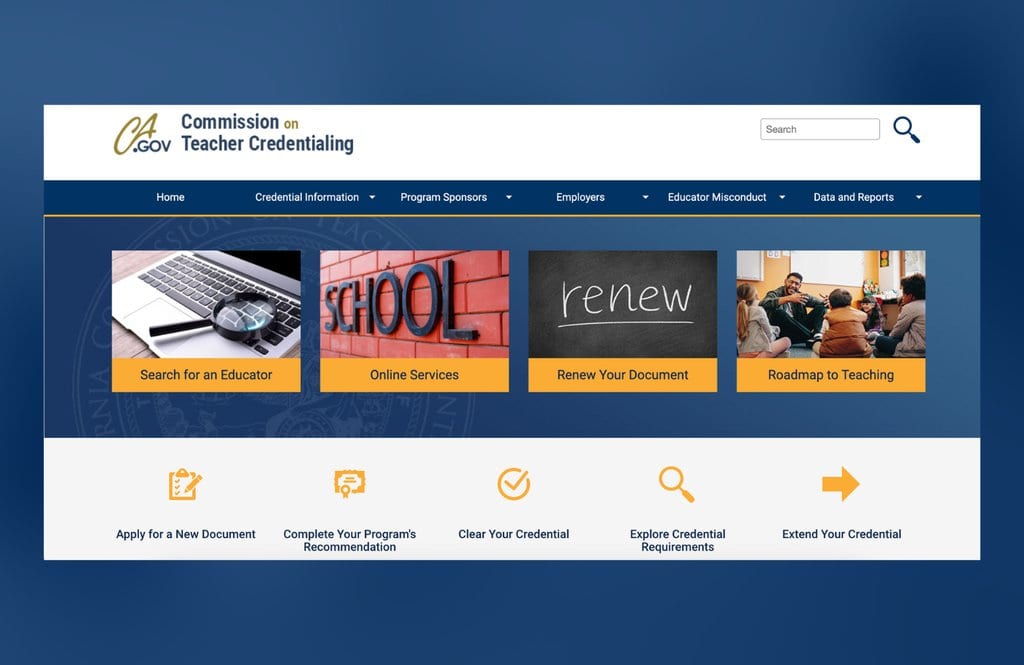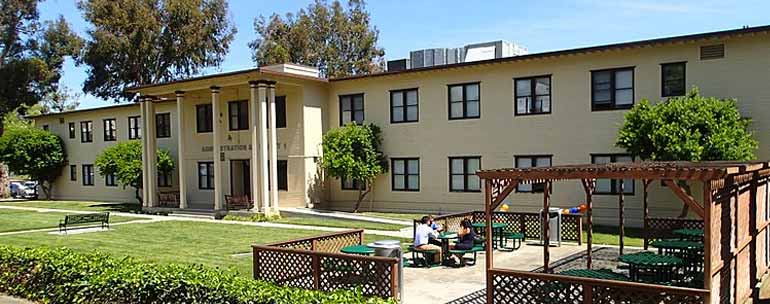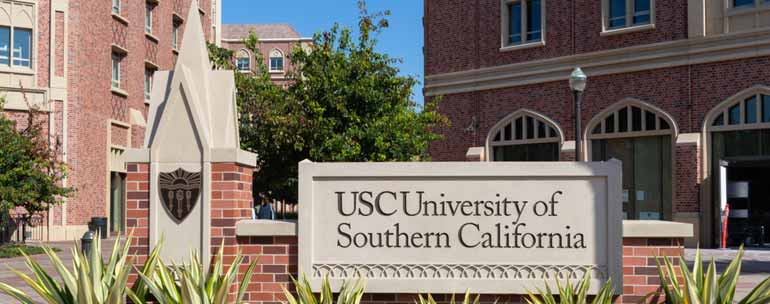California teaching credential programs are designed to teach students how to use their creativity, passion, and knowledge to shape the future one student at a time.

Teaching in California offers an opportunity to make a real impact. With its diverse student population and innovative approaches to education, California needs skilled, inspired, and dedicated teachers more than ever. But how does one join this noble profession? It starts with understanding the pathway to earning a CA teaching credential, the types of credentials available, and what each entails.
Whether you’re a recent graduate, a professional seeking a career change, or just exploring the idea of teaching, this guide will navigate you through the intricacies of earning California teacher certification.
Understanding California Teaching Credentials

In California, the journey to becoming a teacher is marked by obtaining one of several types of credentials. Each credential caters to different educational settings and subjects.
Types of Credentials
Here is a rundown of the types of teaching credentials in California.
- Preliminary credential: This is typically the first credential an aspiring teacher earns. It’s valid for five years and requires enrollment in an induction program to obtain.
- Clear credential: Obtained after completing the induction program, this credential signifies a higher level of experience and expertise.
- Single subject credential: This credential is intended for those interested in teaching a specific subject, like math or English, in middle and high school.
- Multiple subject credential: Typically earned by elementary school teachers, this credential is designed for individuals aiming to teach multiple subjects.
- Special education credential: This credential is tailored for those who wish to work with students with special needs.
Each type of credential has specific requirements and applications, ensuring teachers are well-prepared for their chosen teaching environment.
Why Credentials Matter

California’s education system is built on a foundation of quality and standardization.
Teacher credential programs ensure that teachers possess not only the necessary academic qualifications but also the practical skills and ethical standards essential for effective teaching. They are a testament to a teacher’s commitment to their profession and their preparedness to handle the diverse challenges of the classroom.
It’s a mark of credibility that reassures parents, schools, and the community at large of the quality of education their children will receive.
Credentialing Authority

The California Commission on Teacher Credentialing (CTC) is the authoritative body overseeing the issuance of teaching credentials. The CTC sets the standards and requirements for teacher preparation, ensuring consistency and quality across the state.
The Path to Getting Your Teaching Credential in California
While the path to earning teaching credentials is similar in many states and there are national guidelines that must be met, each state has unique requirements.
Here is a general breakdown of how to get a teaching credential in California.
Educational Requirements

The cornerstone of becoming a teacher in California is, without a doubt, education.
To gain this education, you’ll need the following:
- Bachelor’s degree: The first step is obtaining a bachelor’s degree from an accredited university. This degree doesn’t necessarily have to be in education, but it should provide a solid foundation for your teaching career.
- Professional preparation program: After securing your degree, the next step is enrolling in a teacher preparation program, which is specifically designed to equip you with the skills and knowledge needed for effective teaching.
Your specific education requirements to be a teacher in California will vary based on the field of teaching you wish to go into, but these are the typical things that all teachers need.
Credential Programs
Credential programs are specialized courses that prepare you for the classroom. They cover a variety of essential topics, such as:
- Theoretical knowledge: Theoretical knowledge includes educational theories, learning models, and pedagogical strategies.
- Practical application: You’ll also need to learn how to practically apply the knowledge by learning techniques for classroom management, lesson planning, and student assessment.
Depending on the field of education you wish to teach in, your credential program will also have specific courses needed to develop your knowledge in that field.
Accredited Institutions

Choosing a program accredited by the California Commission on Teacher Credentialing (CTC) is crucial. Accreditation ensures that the program meets the state’s rigorous standards for teacher education.
For more information on accreditation, you can visit the US Department of Education website.
Key Components of Teaching Credential Programs
Credential programs in California are comprehensive, encompassing a mix of theoretical learning and practical experience.
While your specific program will differ depending on the school you attend, these are some common aspects of teaching programs in California.
- Coursework: Your coursework will likely cover topics like educational psychology, teaching methods, and subject-specific pedagogy.
- Student teaching experiences: This is where theory meets practice. In your student teaching experiences, you can gain hands-on experience teaching in a classroom under the supervision of an experienced educator. This component is critical for gaining real-world teaching experience.
- Exams and assessments: To ensure that candidates are ready for the classroom, credential programs require the completion of various assessments. These include the California Subject Examinations for Teachers (CSET), which tests your subject matter knowledge, and the California Basic Educational Skills Test (CBEST), which assesses basic reading, writing, and math skills.
- Performance assessments: Your teaching must also pass a Teaching Performance Assessment (TPA) to evaluate your teaching capabilities and readiness for a real classroom environment. This assessment will be conducted at an on-site teaching placement where you’ll have the chance to teach students alongside supervising and master teachers.
These are just the general aspects of a teaching education program in California. For specific information about the program you are interested in, you can research your prospective school website or talk with an admissions counselor.
Specializations and Advanced Credentials

The field of education is vast and varied, offering numerous pathways for teachers to specialize and advance in their careers. Depending on your interests, you can choose to specialize in a particular area.
Common specializations include:
- Special Education: This specialization is focused on teaching students with special needs.
- Bilingual Education: This specialization is designed for educators who will teach in both English and another language.
- STEM: Standing for Science, Technology, Engineering, and Math, this specialization attracts teachers who are passionate about these critical and ever-evolving fields.
For those looking to further their teaching careers, California offers advanced credentials as well. These include:
- Administrative credentials: These are for teachers aspiring to move into administrative and leadership roles.
- Supplementary credentials: These allow teachers to add additional subjects or specializations to their existing credentials.
Many teachers continue to further their education throughout their careers to stay up-to-date on the latest pedagogical theories and practices and the subject matters they teach.
The Teaching Credential Application Process

Navigating the application process for a teaching credential can be complex.
Here’s a step-by-step guide to help make it more manageable:
- Complete your education and credential program. It’s important to ensure you have met all the educational and program requirements.
- Pass required exams. You’ll need to pass the CSET and CBEST, plus any other requirements specific to your field and program.
- Prepare your application. You’ll have a portfolio of necessary documents you’ll need to gather, including transcripts, test scores, and proof of program completion.
- Submit your application to the CTC. You can apply through the CTC’s online system.
- Pay application fees. The amount of these fees varies. but the fees are required for processing your application.
- Await Credential Issuance. After submission, there will be a processing period before your credential is issued.
The process of receiving your credential after completing your education typically takes several months, though this time can vary depending on your circumstances.
Career Prospects and Continuing Education

Your teaching credential can help open up a world of opportunities in California’s diverse and dynamic educational landscape.
Job Market Insights
The job market is quite positive in many ways for educators in California. There is high demand and competitive salaries for teachers in many fields, and the state has numerous, high-quality schools in which teachers can continue their education and further their expertise.
Demand for Teachers
California consistently has a high demand for qualified teachers, especially in areas like special education, STEM, and bilingual education.
According to the Bureau of Labor Statistics (BLS), over 1 million people are employed in educational occupations in the state of California and there is an estimated job growth of over 5% in the field of education.
Competitive Salaries

Teachers in California enjoy competitive salaries, with opportunities for increases based on experience, education level, and additional credentials.
According to the BLS, these are some of the mean annual salaries for teaching careers in California:
| Careers | Annual Median Salaries |
| Career and Technical Education Teachers, Secondary School | $94,780 |
| Kindergarten Teachers | $94,560 |
| Middle School Teachers | $93,000 |
| Secondary School Teachers | $92,960 |
| Elementary School Teachers | $90,470 |
| Special Education Teachers | $90,380 |
| Career and Technical Education Teachers, Middle School | $89,350 |
These are just some of the careers you may pursue with California teaching credentials. Your specific salary will depend on several factors, including your experience, location, and employer.
Continuing Education

Learning never stops for educators. Engaging in professional development is crucial for staying updated with the latest educational methodologies, enhancing your teaching skills, and meeting continuing education requirements for credential renewal.
With exciting job opportunities, numerous schools in which to continue their education, and diverse offerings to work in, many educators decide to teach in California.
What Are the Basic Requirements for Obtaining a Teaching Credential in California?
To obtain a teaching credential in California, the foundational requirement is a bachelor’s degree from a recognized university. After this, one must complete a teacher preparation program accredited by the California Commission on Teacher Credentialing.
Finally, candidates must pass key competency exams, like the California Basic Educational Skills Test (CBEST) and the California Subject Examinations for Teachers (CSET).
Can You Specialize in a Specific Subject Area with a California Teaching Credential?

Yes, specialization is a significant aspect of the California teaching credential system. The Single Subject Teaching Credential allows educators to specialize in teaching specific subjects, such as mathematics, science, or English, at the middle and high school levels.
To obtain this credential, candidates have to demonstrate their proficiency in the subject area, typically through a combination of relevant coursework and passing subject-specific sections of the CSET.
Is It Possible to Teach All Core Subjects in an Elementary School with a California Teaching Credential?
Yes, in California, the Multiple Subject Teaching Credential is designed for those who wish to teach multiple subjects in an elementary school setting. This credential prepares educators to handle the varied curriculum of a self-contained classroom, where one teacher covers all core subjects.
The preparation involves a blend of broad-based academic knowledge and practical classroom teaching experience.
What Pathways Are Available for Individuals Who Want to Teach Students with Special Needs in California?

For those interested in teaching students with special needs, California offers the Education Specialist Instruction Credential.
The curriculum in these programs is tailored to provide specialized skills and strategies for effective teaching and support of students with special educational needs.
Are There Any Online Programs for California Teaching Credentials?
Yes, there are hybrid online teaching credential programs in California. Some of these programs allow you to complete most of the coursework online, but teaching experiences must be completed in person.
These programs are designed to provide flexibility for those who may not be able to attend traditional, on-campus programs. They cover the same key components as in-person programs and are subject to the same accreditation and state approval standards.
Best California Teaching Credential Programs
Methodology: The following school list is in alphabetical order. To be included, a college or university must be regionally accredited and offer degree programs online or in a hybrid format.

Students may earn teaching credentials or combine credentials to earn a master’s through Biola University. The Intern Credential program allows students to work as teachers while earning credentials. The program is fully online. Multiple subject, single subject, or special education credentials may be pursued. The program follows a Christian worldview.
Biola is accredited by the WASC Senior College & University Commission.

California State University offers several pathways to teaching credentials. The CalStateTEACH program is primarily online. The program is designed for teachers who teach or plan to teach in elementary classrooms. Credentials may be earned in multiple subjects. Teaching credentials may also be earned through one of CSU’s many locations throughout the state.
CSU is accredited by the WASC Senior College and University Commission.

Claremont Graduate University offers a program that can be completed for elementary teaching credentials, an MA in Education, or an MS in Education. It can potentially be completed in as little as 12 months. Students work through the program with a cohort. Students may complete a residency or an internship to earn credits. The internship allows students to earn an income.
Claremont Graduate University is accredited by the WASC Senior College and University Commission.

Los Angeles Pacific University offers a Multiple Subject Teaching Credential program designed for those who wish to teach in K-8 settings. A bachelor’s degree is needed to apply. The program is conducted in an accelerated format and can potentially be completed in 1 year. The completion of 34 credits is required to graduate. Some courses may be completed for graduate credit.
Los Angeles Pacific University is accredited by the WASC Senior College and University Commission.

National University offers teaching credential and certification programs for students in California. Applicants must hold a bachelor’s degree. The program may be completed fully online or in a hybrid format. Courses are 4 weeks long each, and one course is completed at a time. There are multiple start dates offered throughout the year.
National University is accredited by the WASC Senior College and University Commission.

Pacific Oaks College offers a program to earn credentials to teach in K-12 multiple-subject classrooms. It seeks to prepare students for licensure. All coursework is fully online. The program requires the completion of 37 credits. A bachelor’s degree is required to apply. Applicants with GPAs under 2.5 must also have letters of recommendation.
Pacific Oaks College is accredited by the WASC Senior Colleges and Universities Commission.

The Master’s University offers a Teaching Credential program. Typically, students in the program earn their bachelor’s degree on campus during the first 3 years. During their 4th and 5th years, they earn teaching credentials and a master’s degree online. Much of the coursework is conducted in an accelerated format. Students often begin teaching jobs during the program.
The Master’s University is accredited by the WASC Senior College and University Commission.

Touro University offers a variety of teaching credentials, including multiple- and single-subject credentials. Students may also earn credentials in Special Education. Intern credentials allow students to work as teachers while earning credentials. Courses are online and synchronous, with class times beginning after school hours. Qualified students may also earn administrative credentials.
Touro University is accredited by the Middle States Commission on Higher Education.

The University of Massachusetts—Global offers Multiple Subject Teaching Credentials. All coursework is fully online. The program provides training to teach in K-12 self-contained classrooms. Many of the courses focus on technology in the modern classroom. The completion of 32 to 36 credits is required to graduate. Certification is only valid in California.
UMass Global is accredited by the WASC Senior College and University Commission.

The University of Southern California – Rossier offers an MA in Teaching. The credentials earned in the program are good for five years. Students may earn multiple subject credentials for primary school and single subject credentials for secondary school. Out-of-state students may also be eligible for the program. The program can potentially be completed in 11 months.
USC is accredited by the Western Association of Schools and Colleges.
Earning Your Teaching Credential in California

Embarking on the journey to become a teacher in California can be both exciting and transformative. It’s a path filled with learning, growth, and the potential to make a significant impact in the lives of students.
Obtaining your California teaching credential can help pave the way to a fulfilling career shaping the future of countless students. If you are ready to join California’s vibrant educational community, you can start by researching accredited California teaching credential programs online today!

